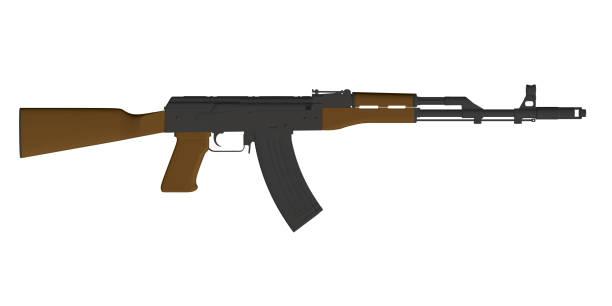Garage Door Maintenance for First-Time Homeowners
Owning a home comes with many responsibilities, and maintaining a garage door is often overlooked. For first-time homeowners, understanding how to properly care for this essential part of the house can prevent unexpected breakdowns, save money, and enhance safety. Garage doors experience frequent use, exposure to weather, and wear on mechanical parts, making regular maintenance crucial. Knowing what to inspect, clean, and repair ensures smooth operation and longevity.
Understanding Your Garage Door System
Before performing maintenance, homeowners should understand the main components of a garage door system. These include the door panels, springs, cables, rollers, tracks, and the opener mechanism. Each part works together to ensure smooth opening and closing.
Door Panels
The panels form the visible part of the door and provide structural support. Damage to panels, such as dents, cracks, or warping, can affect both appearance and functionality. Panels should be inspected regularly for signs of wear or weather-related damage.
Springs and Cables
Springs provide the tension needed to lift the heavy door, while cables guide the door’s movement. Worn or broken springs and frayed cables are major causes of door failure and can be dangerous if handled improperly.
Rollers and Tracks
Rollers glide along the tracks to ensure smooth operation. Dirt, debris, or misalignment can make movement slow or uneven, putting stress on the entire system. Regular cleaning and lubrication help prevent damage and reduce noise.
Garage Door Opener
The opener controls the automated movement of the door. Electrical or mechanical issues in the opener can affect performance, and maintaining its components ensures safety and reliability.
Routine Maintenance Tasks
Performing regular maintenance reduces the likelihood of sudden malfunctions. First-time homeowners should familiarize themselves with basic tasks that can be done safely without professional assistance.
Cleaning and Lubrication
Dirt and debris accumulate in tracks, rollers, and hinges, creating friction. Clean these components with a mild detergent and water. After cleaning, apply a silicone-based lubricant to moving parts. Lubrication ensures smooth movement, reduces noise, and prolongs the life of the garage door components.
Inspecting Springs and Cables
While handling springs requires caution, visual inspection is important. Look for gaps, rust, or fraying in springs and cables. If any signs of wear are detected, do not attempt repairs yourself. Springs are under high tension and can cause serious injury. Contact a professional for safe replacement.
Checking Door Balance
An unbalanced door can strain the opener and affect operation. To check balance, disconnect the opener and manually lift the door halfway. If the door stays in place, it is balanced. If it falls or rises, the springs may need adjustment by a professional.
Testing the Safety Sensors
Modern garage doors have sensors to prevent the door from closing on people or objects. Test the sensors by placing an object in the door’s path. The door should reverse automatically. Clean sensor lenses regularly and ensure proper alignment to maintain safety.
Identifying Common Problems Early
First-time homeowners should be aware of signs that indicate potential issues. Catching problems early can prevent costly repairs and ensure safety.
Slow or Noisy Operation
If the door moves slowly, sticks, or makes unusual noises, this often indicates worn rollers, lack of lubrication, or misaligned tracks. Addressing these problems promptly reduces stress on the door system.
Visible Damage
Dents, cracks, rust, or warping on panels compromise both appearance and functionality. Minor dents may be repaired without full panel replacement, but severe damage should be addressed promptly.
Opener Malfunctions
Intermittent operation, difficulty in responding to remote commands, or unexpected reversals are signs of opener issues. These problems can stem from electrical faults, worn gears, or sensor misalignment.
Frequent Adjustments
If the door requires constant adjustments or repairs, it could signal that components are nearing the end of their lifespan. Regular preventive maintenance can reduce the frequency of these interventions.
Preventive Measures
Proper preventive measures can extend the life of your garage door and reduce the likelihood of sudden failures.
-
Keep the area around the door clear of debris and obstacles.
-
Avoid slamming the door or placing heavy objects against it.
-
Schedule professional inspections annually to check springs, cables, and openers.
-
Apply lubricant to moving parts every six months.
-
Replace weather stripping when worn to prevent drafts and moisture damage.
When to Call Professionals
Some tasks require professional expertise, especially those involving springs, cables, or complex opener repairs. Attempting to handle these yourself can lead to injury or further damage. For reliable and safe maintenance or repairs, contact experts for Garage Door Repair Roseville MI. Professionals can provide thorough inspections, fix complex problems, and ensure the garage door operates safely and efficiently.
Conclusion
Garage doors are essential to home security and convenience, making proper maintenance crucial for first-time homeowners. Understanding components, performing routine cleaning and lubrication, inspecting springs and cables, testing safety sensors, and recognizing early warning signs are all important steps. Preventive care not only extends the life of the door but also reduces repair costs and enhances safety. By combining routine maintenance with professional support when needed, homeowners can keep their garage doors functioning smoothly and reliably for years to come.






